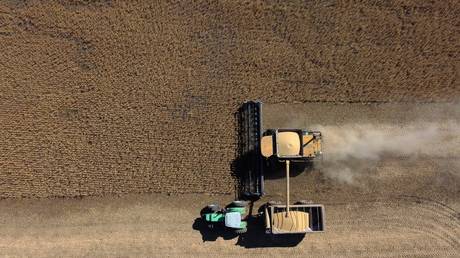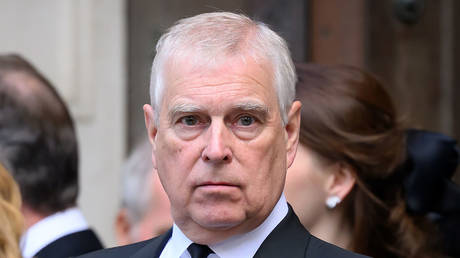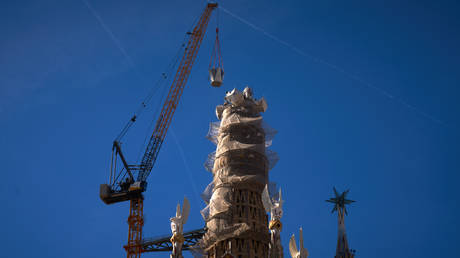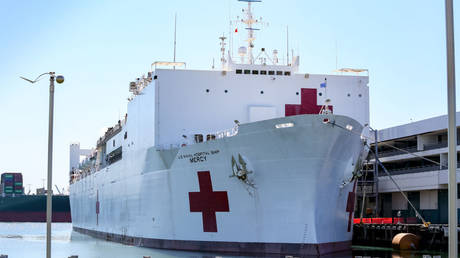
The leaders of the world’s top economies say the conflict in Ukraine has put a strain on global food security
The G7 leaders held a video conference with Ukrainian President Volodymyr Zelensky on Sunday, promising to do more to help poor nations at risk of food crisis due to the conflict between Moscow and Kiev.
Russia’s military operation in Ukraine has been “causing global economic disruptions, impacting the security of global energy supply, fertilizer and food provision, and the functioning of global supply chains in general,” the heads of the US, EU, UK, Canada, France, Germany, Italy, and Japan said in a joint statement after the talks.
“The most vulnerable countries are affected most severely,” they said, adding that the G7 was stepping up efforts to counter the “adverse and harmful” effects.
The leaders said “the causes and consequences of the global food crisis” will be addressed through the group’s Global Alliance for Food Security.The G7 will also work with other international bodies and organizations “with the aim of transforming political commitments into concrete actions” in Africa, the Mediterranean, and elsewhere, the statement reads.
They called upon Russia to “end its blockade and all other activities that further impede Ukrainian food production and exports,” warning that Moscow’s reluctance to do so “will be seen as an attack on feeding the world.”
Ukraine will also receive help in maintaining food production and exporting in view of the next harvest season, the G7 pledged.
As for the conflict, the leaders reiterated that “President Putin must not win his war against Ukraine,” and promised to further tighten the sanctions on Moscow.
They claimed, however, that the restrictions are being “carefully targeted” to not hamper deliveries of food and humanitarian assistance to the most vulnerable groups.
Russia and Ukraine are major suppliers of food to the international market, accounting for around 30% of global wheat exports, among other things.
The disruption of supply chains caused by the conflict between the neighbors has already led to food prices around the world growing by a third and reaching “record levels,” Germany Economy Minister Svenja Schulze said on Sunday.
“The situation is highly dramatic,” Schulze told Bild, warning that the world could be heading for famine not seen since World War II due to the events in Ukraine and the Covid-19 pandemic.
Russia attacked Ukraine following Kiev’s failure to implement the terms of the Minsk agreements, signed in 2014, and Moscow’s eventual recognition of the Donbass republics of Donetsk and Lugansk. The German and French brokered Minsk Protocol was designed to give the breakaway regions special status within the Ukrainian state.
The Kremlin has since demanded that Ukraine officially declare itself a neutral country that will never join NATO. Kiev insists the Russian offensive was completely unprovoked and has denied claims it was planning to retake the two republics by force.




